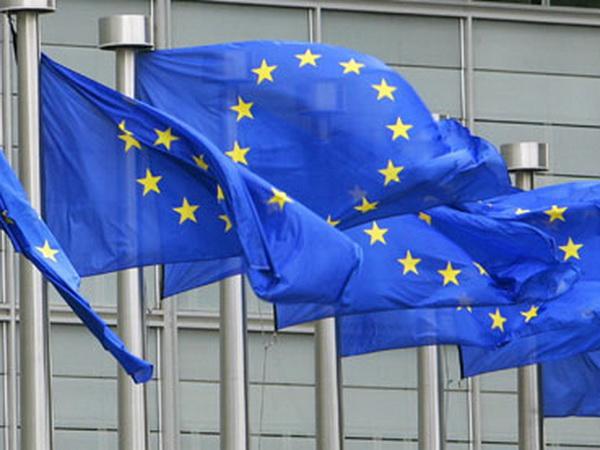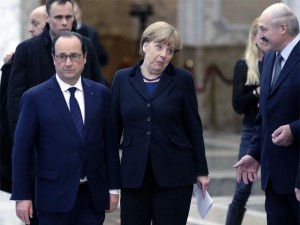The Belarusan National Platform of the EaP CSF issued a statement in connection with the wave of searches in the editorial offices of the Belarusan media and the detention of journalists.
Andrei Yahorau: We can’t blame the EU for the persistently unchanging situation in Belarus

Why does the European Union have no grounds to abolish “black lists”? Why European Dialog on Modernization is only Belarusans’ missed opportunities? What should we do to make the regime introduce reform?
Why does the European Union have no grounds to abolish “black lists”? Why European Dialog on Modernization is only Belarusans’ missed opportunities? What should we do to make the regime introduce reform?
Andrei Yahorau, the director of the Centre for European Transformation, shared with the EuroBelarus Information Service his opinion about the development of Belarus-Europe relations.
— The EU has prolonged the EU`s visa restrictions against Belarusan state officials until October 31, 2014. At the same time it has excluded 13 people and 5 enterprises from “black lists”. What do you think of this decision?
— This decision is but logical, taking into account that Belarus didn’t do anything to abolish visa restrictions. No actual sanctions against the official Minsk exist now; restrictive measures won’t influence Belarus-Europe relations much.
European Union has no grounds to reconsider “black lists”. The only reason for exclusion from the “black lists” is the resignation from the public office where the “black list” for this or that official was formed.
These are exclusively technical alterations.
European Union certified and left without change its moral stance formed after the events of December 2010.
— On October 28-29 international conference “Future EU policies towards Belarus” took place in Vilnius. The name of the Forum suggests that the EU strategy towards Belarus currently in force failed, and Vladimir Makei’s withdrawal from the forum has only testified to that. Do you agree with that?
— Not quite, as we can’t say that after the events of 2010 the EU had clear strategy that could be either effective or not. The EU has taken a number of steps — the so-called “the policy of critical involvement”. But we can’t say that the EU policy was effective.
However, we can’t blame the EU for Belarusan situation remaining unchanged. I personally think that the European Dialog on Modernization is Belarusans’ missed opportunities.
— Did Forum suggest an alternative to the current relationship strategy?
— Some possible options which could become the base of the European policy towards Belarus were voiced at the Forum, but it wasn’t new information.
— You participated in the section on the European Dialog on Modernization. What did the participants think about this program and its effectiveness?
— Different opinions about the efficiency and EDoM guidelines were voiced.
For example, Yauheni Preiherman, the head of the “Liberal Club” believes that the EU should have revised the EDoM; define its priorities and form of participation. He blames the EU for the poor offer; whereas I think that it is Belarusan who are to blame for never using the EU offer. Dzianis Melyantsou, the head of BISS, believes that EDoM should promote the reforms approved by the regime. He suggests the so-called “nomenclature dialog”: a group of experts are elaborating a reform program and realize them together with the authorities; such reforms will result in the “evolutionary” change within Belarus. Melyantsou also thinks that in order to achieve evolutionary reforms we have to drop some political claims.
I put forth an idea of “conventional modernization” versus “authoritarian modernization”. Belarusans should reach consensus on the direction of reforms, and only after that we should activate the mechanisms of influencing the government. And we can’t afford to drop political claims.
Others
-
Statement of the Belarusan EaP CSF National Platform on solidarity with the civil society of Armenia
The Belarusan National Platform of the Eastern Partnership Civil Society Forum issued a statement on solidarity with the civil society of Armenia.
-
Statement of the BNP in connection with the criminal prosecution of the leaders of the Belarusan independent trade unions
The Belarusan National Platform of the Eastern Partnership Civil Society Forum issued a statement in connection with the criminal prosecution of the leaders of the Belarusan independent trade unions.
-
Final event of project CHOICE — Paving the way to European Year of Cultural Heritage 2018
The final event of the two-year EU funded project CHOICE — Cultural Heritage: Opportunity for Improving Civic Engagement was held on June 6, 2017 at the Committee of the Regions, in Brussels.
-
Heritage is a verb. The results of the CHOICE project were summarized in Minsk (Photos and video)
Does Belarus need a “Public Ministry of Culture” and “Ašmiany Charter” to deal with the historical and cultural sites?








Comments
From farewell to a new Eastern policy and towards a new development
Poland and Germany were both initiators and drivers of a New Eastern policy linked to the Eastern neighborhood and Russia/Soviet Union.